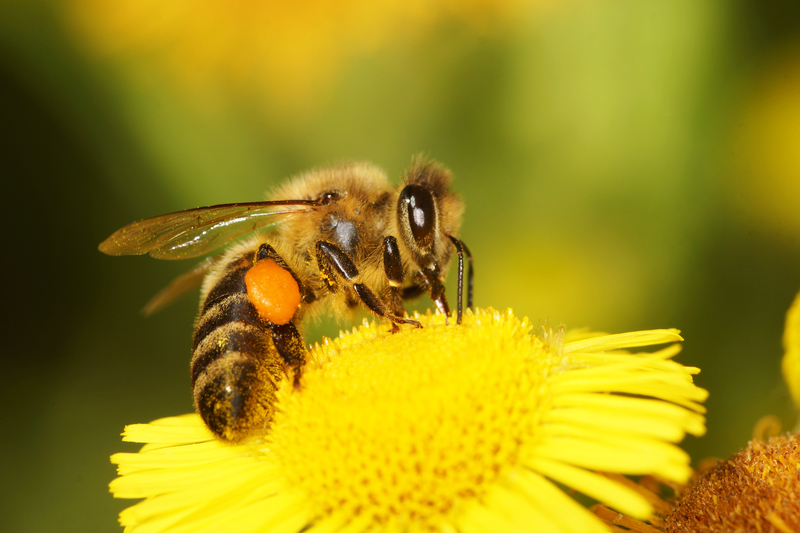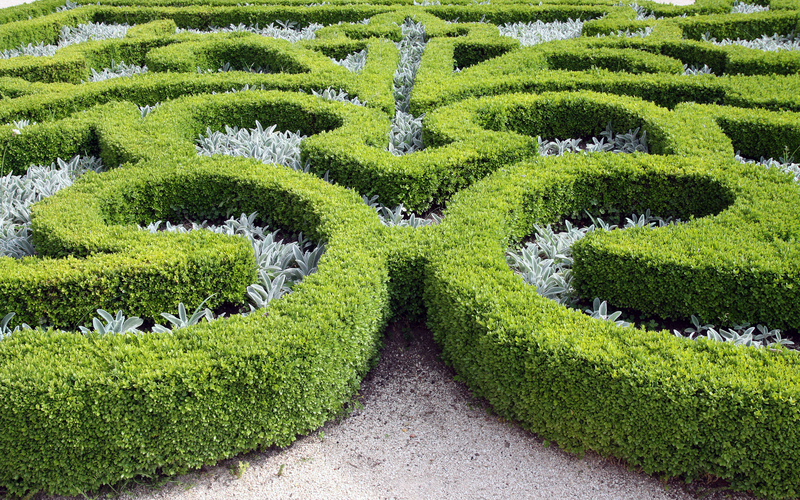9 Expert Gardening Tips for Those New to the Hobby
Posted on 07/06/2025
9 Expert Gardening Tips for Those New to the Hobby
Are you looking to create a lush backyard haven or a productive vegetable patch? If you're a beginner, expert gardening tips can help you sidestep common mistakes and quickly build up your confidence. Whether your space is vast or limited to a sunny windowsill, entering the world of gardening is both rewarding and fun. With the right gardening wisdom and a little patience, you can enjoy thriving plants, healthy produce, and a closer connection to nature.
Why Listen to Expert Gardening Advice?
While experience is a great teacher, heeding seasoned gardener tips saves time, resources, and frustration. Learning the basics lays a solid foundation for your gardening journey, whether your goal is vibrant flowers, fresh herbs, or delicious vegetables. Below, we'll explore nine essential gardening tips curated by professionals to help you achieve gardening success from day one.

1. Start Small and Simple
When you're just getting started, don't overwhelm yourself with a massive garden. Choose a manageable area, such as a few containers on your patio or a 4 ft. x 4 ft. raised bed. This approach helps you focus on learning garden basics without being swamped by maintenance tasks.
- Beginner gardening tip: Avoid planting too many varieties at once. Stick with a few easy-to-grow plants and gradually expand as your confidence grows.
- Gardening experts recommend herbs or leafy greens--mint, basil, spinach, and lettuce are wonderfully forgiving for starters.
2. Understand Your Space and Sunlight
Each plant has unique sun, shade, and soil requirements. Discovering the sunlight patterns in your yard or balcony is crucial for beginner gardeners. Most vegetables and flowering plants need at least 6 hours of direct sunlight daily.
How to Check Your Sunlight Exposure
- Observe: Watch your garden area throughout the day and note where sunlight falls at different times.
- Tip: South-facing yards get the most sun, while north-facing can be shadier.
- Choose plants suited for your yard's light conditions to ensure optimum growth.
3. Focus on Soil Quality
Good soil is the backbone of any thriving garden. Test your soil to uncover what nutrients may be missing, or start with a high-quality, store-bought mix for container gardening.
- Enrich garden beds with compost or organic matter to boost fertility and improve drainage.
- Beginner tip: Don't plant in compacted or rocky soil--roots need room to grow!
- Expert gardeners recommend loosening soil down to at least 6 to 12 inches before planting.
Quick Guide to Testing Your Soil
- Use an at-home kit or local extension service to test pH and nutrients.
- Add lime to raise soil pH or sulfur to lower it, depending on your specific plants' needs.
- Incorporate compost regularly for lasting soil health.
4. Water Wisely
New gardeners often overwater or underwater their plants. Each plant's needs vary, but in general, deep, infrequent watering encourages strong, resilient roots, while shallow, frequent watering can leave plants weak.
- Morning watering is usually best, as it gives plants time to absorb water before the heat of the day.
- Use mulch to retain soil moisture and prevent weeds, which compete for water.
- Avoid watering leaves from above, as wet foliage can encourage disease.
Signs You May Be Overwatering
- Yellowing leaves or wilting, even when soil feels wet
- Root rot or fungus growth
- Stunted plant growth
5. Learn to Identify and Manage Pests Early
Few things frustrate a gardener more than finding pests eating the plants you've nurtured. Integrated Pest Management (IPM), which prefers non-chemical tactics, is the smart way to control garden invaders.
- Inspect plants regularly for insect damage or signs of disease.
- Remove pests by hand or use row covers to protect seedlings.
- Encourage beneficial insects like ladybugs, bees, and lacewings to help maintain a healthy garden.
Common Beginner Garden Pests
- Aphids (tiny green, black, or white bugs on stems and leaves)
- Slugs and snails (visible slime trails and holey leaves)
- Whiteflies and spider mites (look for webbing and yellow spots on leaves)
Expert advice: If you must use a pesticide, choose organic options and always follow instructions carefully.
6. Choose the Right Plants for Your Area
Selecting plants suited to your region's climate makes gardening easier and more successful. Native plants and those adapted to your local environment typically require less water, fewer pesticides, and less maintenance.
- Check your USDA Hardiness Zone or local climate guides to identify suitable varieties.
- Ask local nurseries or join gardening clubs for advice on what grows well in your area.
- Consider pollinator-friendly flowers to support bees and butterflies.
Easy Plants for Gardening Beginners
- Herbs: Mint, chives, parsley, basil
- Vegetables: Radishes, lettuce, zucchini, cherry tomatoes
- Flowers: Marigolds, sunflowers, zinnias, cosmos
7. Feed Your Plants Regularly
Plant health is dependent on more than just sunlight and water. Nutrients like nitrogen, phosphorus, and potassium are essential, and while some come from soil, many plants need a boost as they grow.
- Use a balanced, slow-release fertilizer for most edibles and flowers.
- Compost tea or worm castings can offer an organic nutrient boost.
- Avoid over-fertilizing as this can harm plants and pollute waterways.
Tips for Fertilizing in Home Gardens
- Follow package instructions closely--more isn't always better!
- Feed most vegetables every 3-4 weeks during the growing season.
- Mulch can also improve soil fertility as it breaks down.
8. Practice Patience and Take Notes
Even with all the expert gardening tips for beginners, plants don't grow overnight. Patience is one of the most valuable gardening skills you can cultivate. Track your progress by keeping a simple garden journal. Record what you plant, when you plant it, watering frequency, and results.
- Take photos and jot notes on anything unusual, from pest sightings to blossom times.
- Use this information next season to refine your gardening approach and increase your success.
- Remember: Mistakes are the stepping stones of a great gardener!
9. Make Gardening Enjoyable and Relaxing
The best gardens are those tended with joy. Incorporate soothing elements like a bench, wind chimes, or a birdbath into your garden. Celebrate your harvests, no matter how small, and share them with friends and neighbors.
- Join local gardening groups for camaraderie and practical advice.
- Share surplus produce or cut flowers--gardening is about community as much as growth.
- Above all, experiment and have fun in your green space!
Beginner Gardening Essentials: Tools and Resources
To make the most of these gardening tips for those new to the hobby, invest in a few basic garden tools:
- Hand trowel and cultivator
- Gardening gloves
- Watering can or hose with adjustable nozzle
- Pruning shears
- Quality potting mix
- Organic fertilizer
- Mulch for moisture retention
- Labels for plant identification
Educational Resources for Novice Gardeners
- Local Cooperative Extension offices
- Free online gardening tutorials and YouTube channels
- Gardening clubs and communities on social media
- Books and magazines tailored to regional gardening

Frequently Asked Questions: Gardening Tips for Beginners
- Q: How often should I water my plants?
A: Most plants need deep watering once or twice weekly, but check the soil moisture before watering. - Q: What is the easiest edible plant to grow?
A: Herbs like basil, mint, and parsley or leafy greens such as lettuce and spinach are great for beginners. - Q: Can I garden in a small space or indoors?
A: Absolutely! Container gardening is perfect for balconies, patios, or sunny windowsills. - Q: What if I have poor soil quality?
A: Raised beds and container gardens filled with quality soil are excellent solutions for challenging ground.
Conclusion: Grow with Confidence
Taking up gardening unveils a world of color, flavor, and wellness benefits. Even if you start with a single pot, the gardening tips from experts shared above will help you nurture your plants, develop your skills, and enjoy the process. Remember: start small, keep learning, and let your garden--and your gardening experience--grow.
Ready to dig in? With these nine expert gardening tips for those new to the hobby, you'll have the tools, knowledge, and confidence to start blossoming as a gardener. Happy planting!
Latest Posts
Easy and Cost-Effective Low Maintenance Solutions for Your Garden
Prepare Your Garden for Winter: Protecting Plants from Cold
Guide to Designing a Safe and Fun Garden for Children

